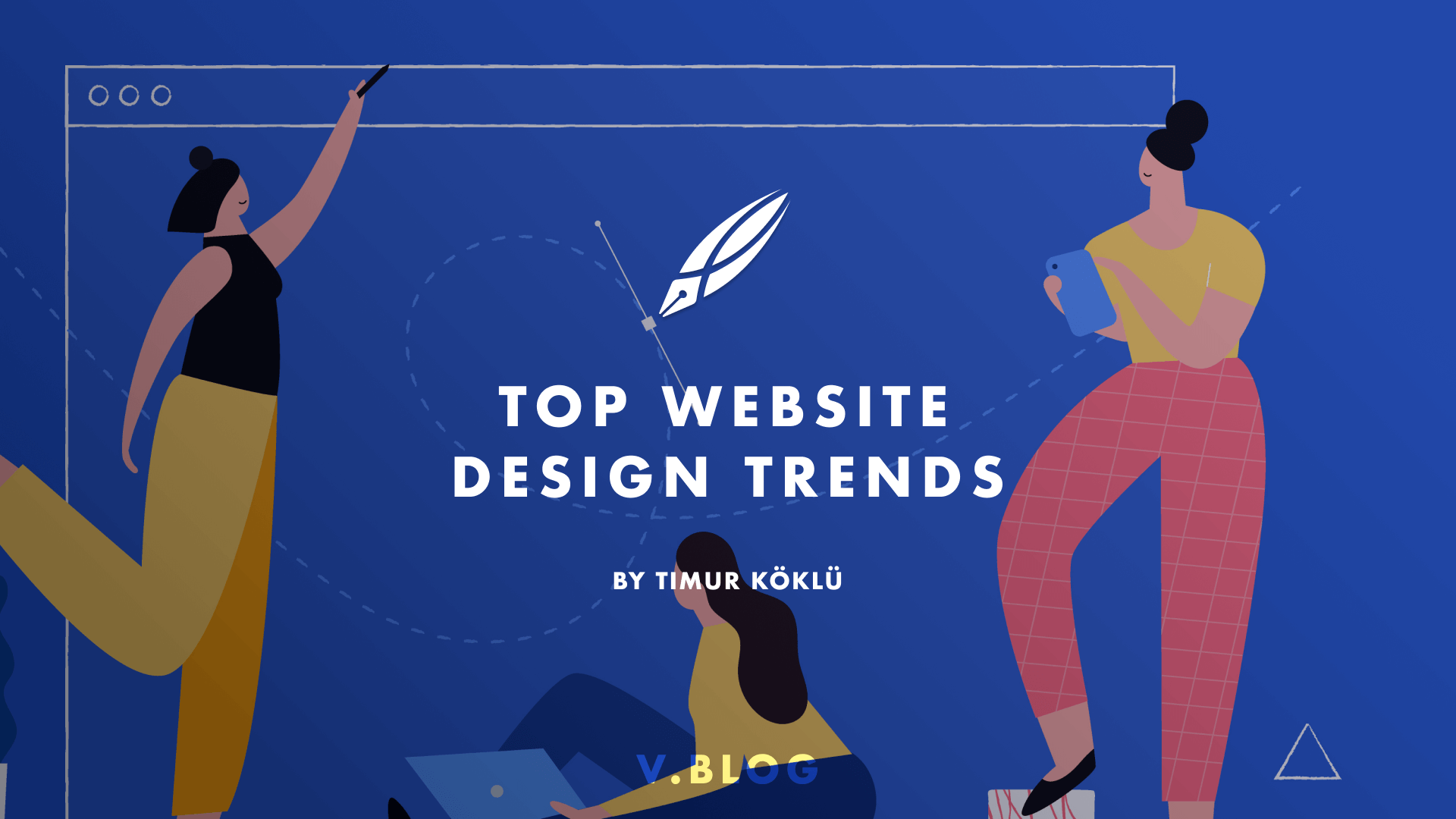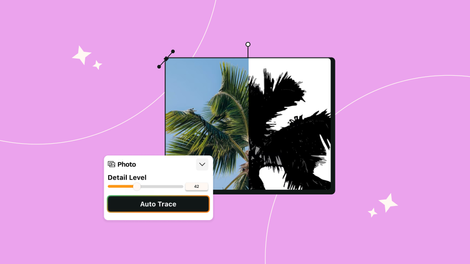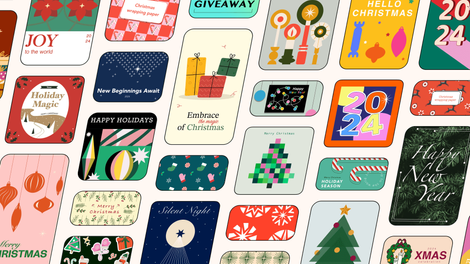In 2021, many business owners pivoted on digital marketing and launched their eCommerce websites to keep their enterprises up and running. Many people sought job opportunities or made money online by creating a blog or portfolio website.
This phenomenon will continue and grow even more extensive this year. To help you gather inspiration and stay ahead in this creative field, check out the 12 biggest website design trends for 2022.
Jumpstart your ideas with Linearity Curve
Take your designs to the next level.
1. Parallax effects

The concept of parallax effects was inspired by the aesthetic of 2D vintage video games. It creates the illusion of depth by using layers moving at different speeds. You can find many methods to design this effect, but it’s often implemented by moving the background slower than the foreground.
Parallax effects can trigger users with a sense of animation and curiosity to scroll through the entire design. It’s a great way to help your website’s design stand out. However, keep in mind that parallax web design can lead to a negative SEO impact.
2. 3D visuals
With the spread of higher resolution screens, designers follow it by playing with 3D for animations and illustrations on websites. Compared to tons of photos, it can offer better product visualization.
Here are the best personal website examples using 3D visuals.
- Bruno Ortolland. This CG artist showcases his 3D visuals directly on the homepage. They can be moved using a cursor and even come with music.

- Titouan Mathis. This web developer livens up his website with interactive 3D spiraling patterns, which are fun to play around with.

- Diana Martel. This music video director applies 3D credits titles on her page. You can use your mouse to move the hover over the title.

3. Emojis

According to Adobe, more than 60 percent of people say emojis make conversations more fun and playful. They are an excellent medium for communicating thoughts and feelings, and is widely known as non-verbal messaging.
However, be careful when choosing certain emojis. The same emoji can be interpreted differently in different areas. For example, waving hands means goodbye in the West, but means “we’re not friends” in China.
Get creative with our ready-to-use templates.
Linearity Curve offers templates for every social media platform and various use case templates for posters, business cards, slides, app store screenshots, and more.
Putting too many emojis into your messages can also make you look a bit unprofessional and immature.
4. Minimalism

Simplicity in design can be a lifesaver from the overload of digital information during the pandemic. It may one day completely overtake complex designs, because minimalism helps users focus only on the essentials. This is widely considered not just in physical interiors but also in real estate web design to showcase the neatness and aesthetical looks of properties.
You can use minimalist design trends on your website by:
- Applying a limited color palette. Pick a monochromatic color scheme with one or two accent colors to highlight the important elements of your site.
- Restricting the use of elements and features. When designing, ask yourself whether each element is necessary, serves a purpose, or whether you can make it simpler.
- Maximizing the white space. Many designers are afraid to bore visitors with white space, instead, it helps you direct your visitor's gaze to the important sections.
5. Questionnaires
With the number of products or services available on your site, urge your visitors to choose the product using a personalized quiz for an interactive experience.
Persona Nutrition’s assessment is the prime example of this trend. The nutritional supplement company helps their customers to choose nutrients that suit their lifestyle and health goals.

The key takeaways from this example are:
- Make clear call-to-action (CTA) buttons.
- Explain what the respondents can expect after filling the quiz and how much time they need to fill it.
- In some questions like sex and weight, it includes a link that explains why the company needs to ask it. Offer transparency to the respondents by adding useful information.
6. Abstract сompositions

Abstract art has been around for many years, but in 2022 web designers are making it more complex using vibrant colors with various shapes and textures.
The outcome of the web page will be more expressive and energetic. You can also combine abstract compositions with photographs and figure illustrations.
7. Horizontal scrolling

Scrolling downward has always been a navigational norm, but 2021 popularized the act of horizontal scrolling.
This can be a challenge to implement correctly, as many visitors naturally scroll down when they open a web page. If you don't offer them clear indications that the page is meant to scroll sideways, they may assume that a page with horizontal scrolling is broken and simply leave.
Ready to create brand assets that pack a punch?
Visit our Academy for free website design courses.
To adapt to this trend, consider what types of content are better represented using horizontal scrolling versus vertical scrolling.
A photo gallery is good, but don’t force this feature on a page filled with text. You can use it for displaying categories too.
Apply a clear indicator that helps readers know that the particular page will scroll horizontally.
8. AR experiences
Augmented Reality (AR) can improve user experience, especially for eCommerce website users. It provides your audience with a 360 experience.
Check these websites that offer AR technology.
- Jeep. Uses AR to let their potential customers see the car’s interior without going to car dealerships.

- Purina. This site educates visitors about signs of healthy pets by popping up a cat or dog in your room using AR technology and displaying the health cycle.

- First Man. This film incorporates AR in their marketing. Open the website and point your smartphone at the moon to simulate the visual experience of the Apollo 11 mission.

9. Collage Art

This web design trend has been adapted from offline media like magazines and newspapers. It touches digital media after becoming a social media feed format and will soon be trending for web design.
Collage art is quite popular, due to its versatility and appealing aesthetic. Designers can apply a variety of artwork styles to create a collage that suits their brand.
Here are several aspects to consider when designing collage art.
- Theme. Limit your broad creative options for a more impactful piece. You can pick an obvious theme like “winter” or an abstract one like “tomorrow”.
- Composition. Be creative with compositional techniques, like one-point perspective and rule of thirds.
- Patterns and textures. Use patterns to build physical illusion and contrast to the collage art.
10. Emotive typography
Emotive typography refers to the typographic designs that connect words and emotional responses. For example, the word “splash” will be associated with water, so the design uses blue and tiny drops.
To make the typography stand out, use a simple background. Try to keep the number of letters and words minimum, so it won’t overwhelm the readers.
11. Scrolling effects
Outside horizontal scrolling and parallax effects, this year, designers will be experimenting with other types of scrolling.
Get inspired with these scrolling effects.
- Long scrolling. This is often used for a single-page website. It often features a smooth and linear storytelling technique—for example, Le Mugs.

- Fixed long scrolling. Combines multiple sections on one page. Each section focuses on explaining one topic like history, tutorial, and contact—for example, Carandache.

- Scrolling cards. Use a layout that makes a website look like swiping cards whether horizontally or vertically—for example, Ofcina.

12. Muted Colours
Muted colors make it easy for visitors to keep looking at the web page, due to the comfortable low-saturation colors. This type of color is often dulled or greyed-out, like a cloudy day.
Many designers use this light color palette to showcase minimalist looks. It can also give a more natural and elegant feel.
Winc is a perfect example of a muted-color website. It uses cream and greyish colors along with simple illustrations, which fits an elegant wine club.

Conclusion
These website design trends for 2022 won’t work if you don’t develop them with a thoughtful design plan.
We recommend using these trends to get inspiration and turn them into your own design tools that match your brand personality. You can combine them with other styles or even throw them out completely. If you need a space to test your innovative new design ideas, look no further than Vectornator!
Have fun!
Jumpstart your ideas with Linearity Curve
Take your designs to the next level.

Share this!
Ben Barnhart
Ben is the Marketing Manager at Linearity in Berlin, with extensive experience in content writing. He blends his passion for animation and history to develop impactful marketing strategies.





:quality(75))




